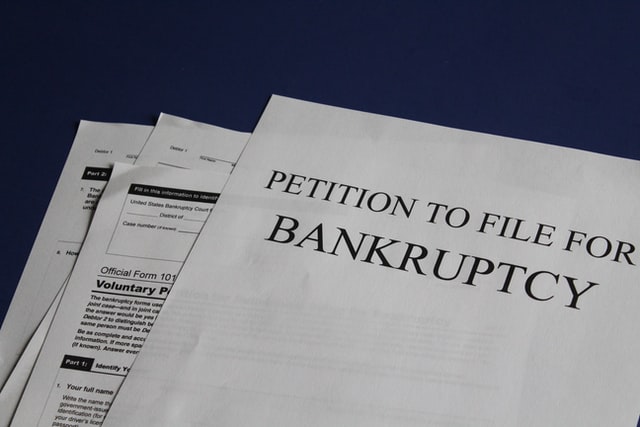
PH: (847) 549-0600 FX: (847) 589-2263 Info@LawJTLG.com

Due to increased government benefits, moratoriums on evictions, and certain government incentives to ease financial pressures in many households in 2021, total new bankruptcy filings across all chapters were 24.2% lower than in 2020.
Nonetheless, bankruptcy continues to be a complex legal proceeding involving a person or business that is unable to repay its outstanding debts.
What Are the Types of Bankruptcies?
Chapter 7: Liquidation
A Chapter 7 bankruptcy deals with cases also known as “no-asset cases” because there may not be an actual liquidation of the entire debtor’s assets. To qualify for a Chapter 7 bankruptcy, a debtor must have below the average household income and though not a requirement, ideally little in way of assets.
Under Chapter 7, a trustee takes over the assets of the debtor’s estate, reduces them to cash, and makes distributions to creditors, with exception to the debtor’s right to retain certain exempt property and the rights of secured creditors such as retirement accounts, certain amounts of equity in residential real estate and equity in automobiles, to name a few. As a result, most debts are discharged, and a debtor is allowed to keep their exempt property.
The application of a “means test” is used to determine whether debtors qualify for relief under Chapter 7. If a debtor’s income is in excess of certain thresholds, the debtor may not be eligible for Chapter 7 relief. The “means test” is determined by a debtor’s “current monthly income” and the operative question it seeks to answer is whether the household income exceeds median income for your household size in your geographical area. This test determines preliminarily whether the filing is presumed abusive. Abuse is presumed if the debtor’s household combined current monthly income over the past 6 months, minus a net of certain allowed expenses exceeds the average gross income for your household size.. The debtor may refute a presumption of abuse only by a showing of special circumstances that justify additional expenses or adjustments of current monthly income. Unless the debtor overcomes the presumption of abuse, the case will be converted to a Chapter 13 (with the debtor’s consent) bankruptcy filing or will be dismissed.
Ultimately, Chapter 7 bankruptcy cases do not involve the filing of a plan of repayment as in Chapter 13. Accordingly, potential debtors should realize that the filing of a petition under Chapter 7 may result in the loss of property.
Chapter 13: Repayment Plan
A Chapter 13 bankruptcy is designed for a debtor who has a regular source of income. Chapter 13 enables the debtor to keep their valuable assets, such as a house, or an automobile, since in Chapter 7 you can only exempt those kinds of assets up to a certain amount, and it gives the debtor an opportunity to propose a “plan” to repay creditors in approximately three to five years. Chapter 13 is also used by debtors who do not qualify for Chapter 7 relief under the “means test”.
A court will either approve or disapprove the debtor’s repayment plan at a court hearing if it is determined to meet the Bankruptcy Code’s requirements. Once the plan is approved, the debtor will make payments to a trustee. The trustee will then pay off their creditors. Once the repayment plan is completed, the debtor will be discharged from their debts. If necessary, a debtor will continue to pay certain back taxes and any obligations in child support and maintenance in full during the plan. Lastly, some types of debts will not be discharged.
A particular advantage of Chapter 13 is that a debtor may remain in possession of their estate through a trustee. In fact, Chapter 13 provides individual debtors with an opportunity to save their homes from foreclosure by allowing them to pay past due payments. It is different than a Chapter 7 bankruptcy case where a debtor is immediately discharged of their debts. Furthermore, under Chapter 13, a debtor is protected from lawsuits, garnishments, and other creditor actions while the plan is in effect. Most notably, more debts are eliminated under a Chapter 13 bankruptcy than under a Chapter 7 bankruptcy.
Other bankruptcy options available in Illinois include: Chapter 9: Municipalities, Chapter 11: Large Reorganization, Chapter 12: Family Farmers, and Chapter 15: Use in Foreign Cases. If you believe you qualify for Chapter 7 or 13 bankruptcy, let the experienced attorneys at Johnston Tomei Lenczycki & Goldberg LLC help you with any concerns you may have. Call us today at (847) 549-0600 or email us at info@lawjtlg.com to schedule a free consultation.
Phone Number: (847) 549-0600
Fax Number: (847) 589-2263
Libertyville Office
350 N. Milwaukee Ave., Ste. 202
Libertyville, IL 60048
Manchester Office
2100 Manchester Road, Suite 920
Wheaton, IL 60187